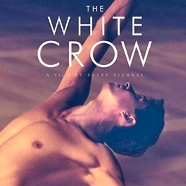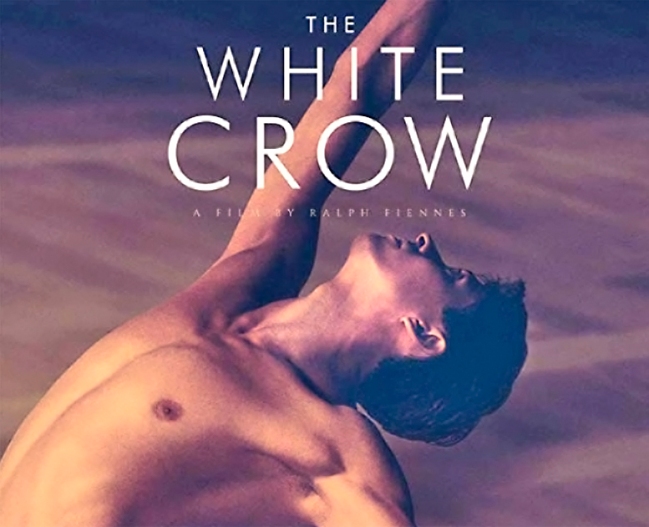 September
02
September
02
Tags
The White Crow (2018)

A ‘white crow’ in the Russian idiom is someone who stands out from others because of their appearance or behaviour. Rudolph Nureyev was, and for many still is, the white crow in the world of male ballet dancers. With extraordinary athleticism and sharply chiselled features, he defied gravity and glamorised male dancing. He also managed to make the KGB look flatfooted when, in 1961, he famously defected to the West
We first see the young Rudolph as a six-year old child prodigy plucked from a poor background. The film flashes-back to these early scenes several times to remind viewers that despite his majestic aura on stage, he came from humble origins. The adult Rudolph (Oleg Ivenko) was a volatile personality both on and off stage. KGB spies watched elite dancers closely because ballet was a major cultural propaganda tool at the height of the Cold War. Rudolph was known to praise creative freedoms in the West and his secret sexuality was seen as a potential source of political embarrassment.
Most of the film builds the context in which Rudolph would commit what Russians believed was the ultimate act of treason. Barely enough camera time is devoted to his ballet lessons and performances, but what is shown will please devotees of the artform. A major sub-narrative is the live-in mentoring by his teacher Pushkin (Ralph Fiennes) and his relationships with Pushkin’s wife Xenia (Chulpan Khamatova) and socialite Clara Saint (Adele Exarchopoulos). Rather than meaningful affairs, these relationships show Rudolph’s willingness to exploit anyone who could advance his dancing career.
The film’s modest tension curve spikes a few times during Rudolph’s fiery temper tantrums, but it jumps steeply during the climactic defection scenes. The camera almost neurotically switches from close-ups on the faces of Russian spies, American observers, Rudolph and Clara, all while in the transit area of a French airport. When Rudolph is stopped from boarding a flight to his next performance, the KGB falsely tell him he has been summoned to a gala performance for the Kremlin. He is thrust into a vortex of disbelief, terror, and the realisation that if he seeks political asylum he will never set foot again in his homeland nor see his family.
Despite its uneven pace and meandering narrative arc, this powerful non-fiction storytelling is backed up with excellent acting performances and cinematography. The Cold War tensions are palpable and the political battle lines drawn clearly. You do not need to be a ballet fan to appreciate this film.

Director: Ralph Fiennes
Stars: Oleg Ivenko, Ralph Fiennes, Adele Exarchopoulos, Chulpan Khamatova

Somehow, I missed this one . Two hips replaced right after I saw the trailer, though. I can jump again, but hope Netflix’s picks “ White Crow” up. Fiennes looked especially good.
LikeLiked by 1 person
Good to see you back on deck Christine; I had one done six weeks ago and its great to walk pain-free again. BTW, you will enjoy this film.
LikeLike
Yes, the new mobility is amazing…gliding when I walk now instead of wobbling.
LikeLiked by 1 person
Hi Richard. Oleg Ivenko bore a remarkable likeness to Nureyev and I think this helped the film a lot. The fact that he could also dance (though who knows his degree of competency), was a bonus and worth the effort of making the film. Perhaps a better director could have a crack at it in the future?
As you’ve said, the tension of the film was centred on his defection. This segment was handled very well. I know I was on the edge of my seat, despite already knowing the outcome just like everyone in the audience.
I’d like to make mention of the dancing of the young boy in the final minutes of running time. He was amazing! Such skilled footwork! There are some clever people out there and it must be advantageous to catch them while they’re young!
LikeLiked by 1 person
I really enjoyed the dance scenes, both of the adult Nureyev and his childhood version. Excellent casting for both…and the ensemble.
LikeLike
Yes, I agree with you on the casting in general. I also loved the scenes with actual dancing on display.
LikeLiked by 1 person
Ali zafar
LikeLike